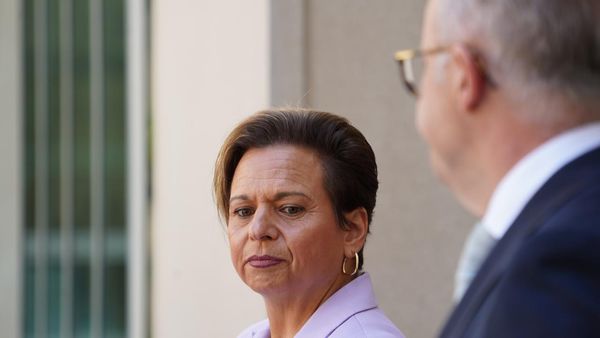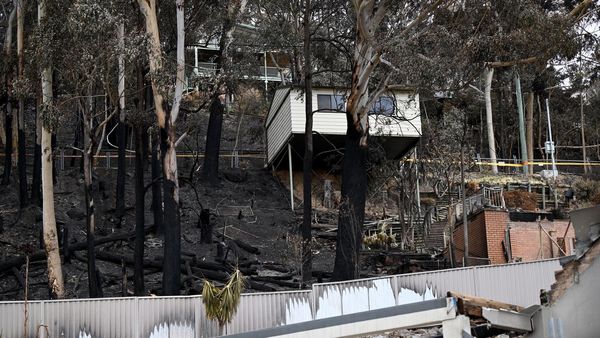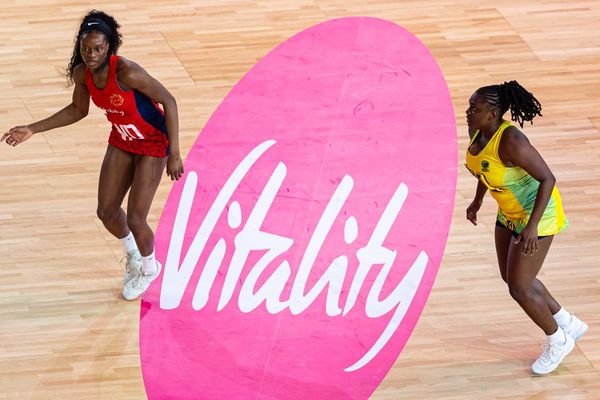Most people who got to hear about Henry “Kiki” Watson was when they watched aerial footage of the Los Angeles riots showing a white van driver being pulled from his construction vehicle and attacked.
Or else it was when the former marine, then aged 27, was arrested and mug-shotted, along with five other young black men and agreed a plea deal to only a modest charge. Or when he appeared with that driver, Reginald Denny, on The Phil Donahue Show after being released from jail, shook his hand and apologised “for my participation in the injuries you suffered”.
Today, Watson, who was involved in one of the most notorious incidents in the riots and civil unrest that followed the acquittal of four white police officers over the beating a year earlier of black motorist Rodney King, says he has no regrets about what he did. Asked if the 55-year-old Watson would have responded in the same way as his younger self, he says he would have.
The reason, he says, is that the structural racism that helped fuel the anger and riots following the beating of King, has not gone away.
“Come on. Racism is racism. You know how Americans feel about black people. You know how British feel about black people. It’s worldwide. It’s not just an American problem, it’s a worldwide problem,” he tells The Independent from Los Angeles.
“S*** ain’t right. The way that black people are treated in the United States is not right. You’re asking if I’m still upset, if I’m still angry. F***, yes. Nothing changed. What has changed? It’s so funny, people like yourself, journalists, every year they want to know what’s changed. Ain’t nothing changed.”
Throughout the 28 years since the riots, Watson has continued to live close to the intersection of Normandie Ave and Florence Ave, where the attack on Denny, then aged 36, was carried out.
The construction worker was ultimately saved after the intervention of four black people – two women and two men – who went to his aid, and managed to drive the truck away from the junction, with him in it. They managed to get the red-coloured rig to the Daniel Freeman Memorial Hospital, with Denny reportedly coughing up blood.
“Those people didn’t even know him and risked their lives to aid him,” Don Kelley, Denny’s roommate, told the Los Angeles Times at the time. “If no one had helped him, he would be dead.”
Denny would later appear with Watson on Donohue’s show. Reviews said both the former’s willingness to forgive, and the latter’s readiness to apologise, felt less than overwhelming.

“This is a civil war,” said Denny, who needed intensive hospital treatment and later moved to Arizona where he maintains a low profile. “This is not me against Mr Watson—it’s not a personal vendetta. The problems were happening before Mr Watson and I were born.”
Watson, who was only convicted of a minor offence and served less than six months, said he had no regrets for his actions. He points to widespread incidents around the country of young black men dying at the hands of police – Eric Garner in New York, or Michael Brown in Ferguson – as proof that the criminal justice system remained overwhelmingly weighted against people of colour.
“No, I don’t. There’s no regrets. No remorse. No nothing. That was just an ass-whipping. Black people, they get beat up for years. We’ve been getting killed for years. So one ass-whipping? No.”
He adds: “You guys write this stuff I don’t have to. I don’t make this up. Ain’t nothing change? Do you think, I’m gonna sit here and tell you ‘Oh, your race relations and everything is wonderful in the United States’. It’s not. So, I’m gonna give you what you need to hear.”
For a number of years, a mural could be seen on the side of side of Watson’s home, documenting a piece of history in which at least 63 people were killed and which the city appears unable to shed. Last year, the mural was removed when he had his work done to his home. For at the past 20 years, he has run a limousine car business.
Watson says the coronavirus pandemic and the fact that data suggests African Americans have been disproportionately infected and killed, underscored the plight of people of colour in the United States. He says he is unsure about the origins of the disease, but feels that the “elites” of China and the United States, are looking out for each other.
“I’m not going to tell you ‘Oh, everything is wonderful. We’re holding hands and singing Kumbaya’. No.
“Everything that happens to a black man, woman or child upset to to the utmost. I feel it all as though it was me myself,” he says.
“That lets you know, they have not changed. You know, they’ve been killing us, they’re still killing us. It’s ridiculous. They’re getting away with murder.”







